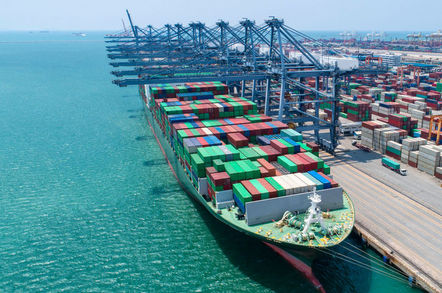Nigeria’s maritime records poor performance in 2019, edges up for 2020
December 23, 20191.9K views0 comments
By Samson Echenim
Nigeria’s maritime sector performance for 2019, like the global maritime business in the year, evidently points to the negative, but factors that drove the local sector downward are not same as those that helped the global maritime performance dip.
As usual, lack of enforcement of maritime related policies remain a bane of the industry in Nigeria, in addition to myriads of controllable factors such as poor seaport access roads, absence of truck parks and ineffective traffic management around the ports, especially, the country’s busiest ports in Lagos.
Read Also:
Lack of adequate enforcement of Cabotage regulations by relevant authorities allowed continued trading on Nigeria’s cabotage waters by foreign vessels during the year. However, the situation is expected to change in favour of local operators, as regulators begin a process to end the waiver regime.
Although with little improvement, international oil companies (IOCs) still dolled out freight contracts to foreign vessels worth millions of dollars, where a few indigenous shipowners who managed to add up one or two vessels to their fleet still scramble for jobs.
Shipping
A number of importation restriction policies, especially those bothering on food products played a role in slowing down importation in 2019.
For instance, ENL Terminals, a major handler of food and other bulk cargoes reported severe cut in the port’s annual tonnage by over 50 percent from about 4.5 million tons to 2 million tons. The terminal in Apapa Port reported just 35 percent of capacity utilisation in 2019, blaming the federal government’s policy restrictions on food items.
Cabotage trade
Perhaps the most improved area of the maritime sector in 2019 is Cabotage trade which appeared to have caught some regulatory attention.
Nigeria’s apex maritime regulator, the Nigerian Maritime Administration and Safety Agency (NIMASA) reported cabotage trade growth by 32 percent
Unfortunately, Rotimi Amaechi, Nigeria’s minister of transportation confessed that he boycotted International Maritime Organisation (IMO) council meeting and election, where Nigeria lost out in the Category C election, due to a major piracy incident that had taken place off Bonny where 18 Indians and one Greece national were abducted on-board Nave Constellation, a Hong Kong flagged crude carrier. Nigeria had lost the Category C seat to Kenya. Amaechi said the situation had been very worrisome, particularly with the fact that foreign shipowners were now engaging security guards in ship while bringing cargoes to Nigeria.
In order to achieve success and attract overseas vessels and shipowners to the Nigerian ship register currently being put together by a committee, the register must meet world class standards and existing international frameworks, a first class marine engineer, Wassa has advised.
Such international frameworks include UNCLOS requirements, UN Conditions For Registration of Ships and several International Maritime Organisation’s requirements. Wassa said the committee must not cut corners, but come up with a register transparent and globally competitive to be able to generate revenue and spur economic activities in the country’s maritime industry.
“Above all, the Nigeria Ship Registry should be open in its operations, equip professionals for tonnage measurements, create revenue stream, generate maritime related economic activities among others,” Wassa said.

